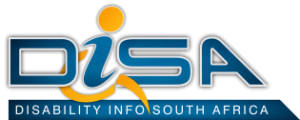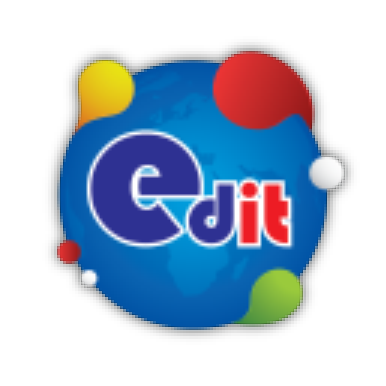Assistive Devices
Contents: To jump to the topic you would like, click on the links below
Introduction
Intellectual Impairments is a broad concept encompassing various Intellectual Disabilities and is characterized by significant limitations both in intellectual functioning and in adaptive behavior, it covers many everyday social and practical skills. Intellectual functioning, refers to general mental capacity, such as learning, reasoning, problem solving, and so on. Individuals with Intellectual Impairments may also have some degree of Visual Impairments, Hearing Impairments or Mobility Impairments.
An Assistive Device is any device that helps someone with an Impairment do something that they might not otherwise be able to do well, or at all, thus giving the person more independents.
Below are a variety of Assistive Devices that can assist to make your life a lot easier and more enjoyable, these are supplied by Organizations & Companies such as Edit Microsystems, which offers a wide variety of solutions and can also advise you on what equipment would best suit your needs and how to best use the equipment that they supply. To view more information about these Assistive Devices and others, read the article below or view the menu on the left
Computers & Electronic Aids
Computers & Electronic Aids are extremely helpful Assistive Devices, especially if you have an Intellectual Impairment. The computer can be a tool for improved literacy, language development, mathematical, organizational, and social skill development. Alternative ways to access computers are available for people who cannot operate a keyboard or Mouse. A variety of software is available to help computer-users with Intellectual Disabilities to facilitate improved spelling and literacy skills. There are also a number of Assistive devices that can assist you to make your computer easier to use.
Computers can therefor be used for a number of purposes including:
- Work
- Education
- Research
- Entertainment
- Socializing
Communication Aids
Some people with intellectual or developmental disabilities (IDD) have communication difficulties. People with intellectual disabilities or those whose disabilities directly affect speech, hearing, or sight are more likely to have communication difficulties. Even when a communication difficulty exists, the exact barrier and the best way to address it often varies.
Communication aids come in many shapes and sizes. Most need to be customized to match the physical, intellectual and social needs of the individual. This includes personalising the vocabulary and content and considering issues such as how the person will carry the aid, point to items, and update and maintain the aid.
There are 4 different types of communication aids:
- Comprehensive Expressive Aids: These aids aim to meet most of a person’s communication needs throughout their day. They include alphabet boards and communication boards and books, with a wide range of messages represented by letters, words, photos and/or symbols.
- Targeted Expressive Aids: These aids are designed for specific situations when limited message sets are needed, such as community request cards, or object symbols to allow a person to make basic requests.
- Visual Supports: Visual supports assist a person to make sense of their day, remember events, or help with the completion of tasks. Many people with complex communication needs have difficulty with memory and understanding abstract information. Examples of visual supports are picture or object calendars, picture shopping lists, and picture social stories.
- Supports for Communication Partners: These provide details about an individual with complex communication needs, his/her means of communication, and other routine related information that assist a communication partner to consistently support this person throughout the day. Examples are a ‘Book About Me’, Personal Communication Dictionary or Personal History.
Educational Aids
An intellectual disability can exist during childhood, rather than happening later in life. This means that an adult who has a car accident and suffers an injury which affects their IQ and cognitive functioning will be categorized as having an acquired brain injury rather than an intellectual disability.
People with an intellectual disability have difficulties in:
- Understanding complex information.
- Using logical thinking to plan ideas and solve problems.
- Following directions and instructions, particularly those which involve multiple steps or complex information.
- Using judgment and abstract thought.
As there is a wide range in IQ scores which can lead to a student being categorized as having an intellectual disability, it also follows that there is a wide range of learning materials and teaching and learning activities which will be needed to meet the needs of individual learners within your special needs classroom or in a mainstream setting. Often students with an intellectual disability will manage better if they receive teaching interventions which are individually planned and targeted at specific goals and learning needs.
Reading Aids
Reading Aids are Assistive Devices that enable a person with a Disability to be able to enjoy books & the hobby of reading. Some people with Intellectual Impairments also find it difficult or impossible to perform tasks like turning pages, or even making out the words or pictures, due to also suffering from Mobility Impairments & Visual Impairments. With the aid of a variety of assistive devices, these tasks become possible so that the hobby of reading is possible, no matter what your disability. There are a variety of Reading Aids available for people who are Intellectually Impaired and include products and devices like:
- Audio Books
- Reading Pens
- Visual Aids for Reading
- Books available on computers
Mobility Impairment Aids
A Mobility Impairment Aid is any device designed to assist someone who also has a Mobility Impairment, so will include:
- Mobility aids
- Transferring Aids
- Pressure Care Aids
A brief explanation of these Assistive devices are covered in detail under the Assivtive such as: walking sticks, crutches, walkers, which are for those individuals who need assistance walking. Manual wheelchairs, Electric wheelchairs or mobility scooters are for individuals with more severe disabilities or for those who can't walk long distances & need to travel these distances without using a motor vehicle.
Shower Chairs/Commodes are for those individuals with more severe disabilities who need assistance getting from the bed to the shower, etc.
Whatever your need may be, you can be guaranteed that you can find a Mobility Aid that will suite your needs.
Service & Therapy Dogs
Service Dogs are Assistance Animals which assists persons who have disabilities or Impairments in various ways. Assistance or Service animals are defined as animals that are individually trained to do work or perform tasks for persons with disabilities, they are working animals and not pets, so the work or task that the animal has been trained to provide must be directly related to the person's disability. There are various types of Service Animals used in countries around the world, but currently only dogs are trained or used in South Africa. These Assistance Dogs can be trained to assist persons with various impairments, including Mobility, Visual, Hearing and various Intellectual Impairments.
Training of these various types of Assistance Dogs is provided by Accredited training companies and organisations such as The Smart Dogs Training Centre, Paws4life Training Academy and The S.A. Dog Training College. Through this training that they receive from these companies and organisations, they will learn how to provide assistance to their handler and the handler will be required to train with their dog to learn how to communicate with their Assistance Dog.
Service Dogs can be trained to assist with persons with Intellectual Impairments in a variety of different ways, including:
- Persons with Autism: Autism Support Dogs.
- Persons with Post Traumatic Stress Disorder (PTSD): Psychiatric Service Dogs or PTSD Dogs
- Persons with Epilepsy or Seizures: Epilepsy Alert Dogs
- Persons with Psychiatric Conditions: Psychiatric Service Dogs.
Therapy Dogs or Therapy Pets are also trained and used in South Africa to provide affection, comfort and support to various people in settings such as hospitals, retirement homes, nursing homes, schools, libraries, hospices, or disaster areas.




